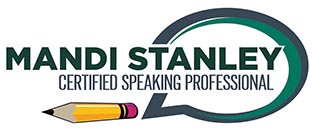Is it “Irregardless” or “Regardless”?
2024 Grammar-for-Grownups Top 10
Number 10: Irregardless
We just completed the eight-week intensive #IAAP CAPstone Business Writing Specialty Certificate course. Congratulations to the 48 participants who completed the course requirements successfully! It was my pleasure to work with you and get to know you during our time together, even though most of it was on Zoom.
During the final two weeks of the course, we focused on the rewriting phase of the overall business writing process. Participants emailed questions throughout the week, and we answered them during our Friday Feature session on Zoom. We called it the Friday Feature because we featured the grammar, punctuation, and capitalization questions that puzzled some of us. I’ve whittled these questions into a Top 10 list. These were the most regularly asked questions during the course. We’ll begin with number 10.
Question: “As far as wacky words, I have an executive who always uses irregardless instead of regardless. Can you please clarify during our discussion on Friday?”
Answer: It won’t take long to answer this one. Irregardless is not grammatically acceptable. Don’t use it. Avoid it when speaking, and definitely don’t write it. Regardless is always the acceptable version.
Example: I’ll be at the school regardless of what time the student awards program ends.
Example: We decided to rent a car and drive to Kansas City regardless of the 11-hour time commitment.
Never use irregardless. You’ll notice even your spellcheck rejects it.
To customize a keynote or professional development session that will have your audience laughing and learning, contact Mandi Stanley.
Certified Speaking Professional Mandi Stanley works with business leaders who want to boost their professional image by becoming better speakers and writers through interactive high-content keynotes, breakout sessions, workshops, technical writing seminars, and fun proofreading classes.
You might also like:
Prefer Performance to Chronology in Your Résumé
It’s Interview Time: What’s the One Detail Most Interviewees Forget?
Wacky Word of the Week: Purge this Particular Word













